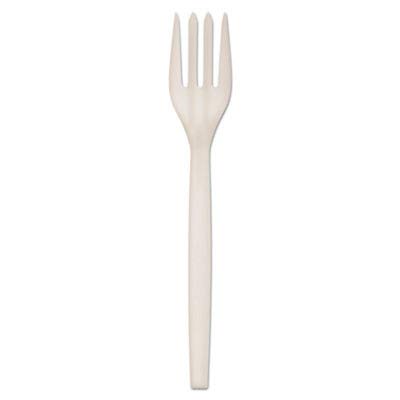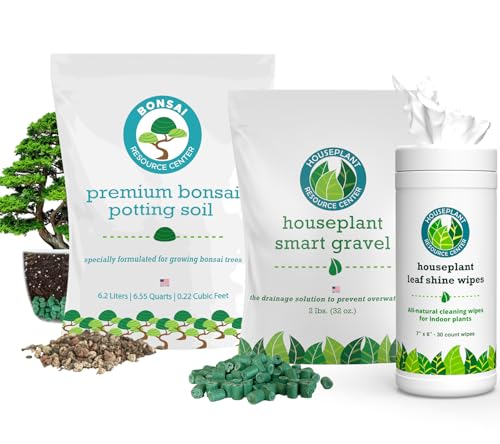
Plant starch forks are becoming increasingly popular as a more sustainable alternative to plastic cutlery. As the world seeks to reduce plastic waste, plant starch forks offer an eco-friendly solution that is biodegradable and compostable. But do these forks truly break down in the environment?
Plant starch forks are made from renewable resources, such as cornstarch, potato starch, or wheat starch. These materials are derived from plants, making them a natural and sustainable choice. When disposed of, plant starch forks are designed to degrade, meaning they can be broken down by microorganisms into smaller organic compounds.
Biodegradability is a key characteristic of plant starch forks. Unlike plastic forks that can take hundreds of years to decompose, plant starch forks can break down within a matter of months, depending on the conditions. In combination with composting, where the forks are broken down with other organic waste, they can fully biodegrade and return to the soil as valuable nutrients.
However, it’s important to note that the biodegradability of plant starch forks is highly dependent on the specific environmental conditions. Factors such as temperature, humidity, and microbial activity can impact the rate of degradation. In ideal conditions, where there is sufficient moisture and warmth, plant starch forks can biodegrade relatively quickly.
In conclusion, plant starch forks do have the potential to biodegrade, making them a more sustainable choice compared to plastic cutlery. However, proper disposal and management are crucial to ensure that these forks are given the opportunity to break down naturally. As consumers, it’s important to prioritize composting and choose compostable options whenever possible to contribute to a more eco-friendly future.
What is Plant Starch?
Plant starch, also known as vegetable starch, is a type of carbohydrate that is derived from various plants. It is commonly found in starchy vegetables such as potatoes, corn, and wheat. Plant starch is made up of long chains of glucose molecules, which create its characteristic texture and structural properties.
When plants undergo photosynthesis, they convert sunlight into energy and produce glucose as a byproduct. This glucose is then stored as starch in various parts of the plant, such as the roots, tubers, and seeds. Starch serves as an energy reserve for the plant and provides the necessary fuel for growth and development.
Plant starch has been widely used in various industries, including food packaging and utensil production. The starch can be extracted from plants and processed into different forms, such as powders or pellets, for manufacturing purposes. It is a renewable and biodegradable material, making it a popular alternative to traditional plastics.
Properties of Plant Starch:
1. Biodegradable: Plant starch is capable of breaking down naturally over time, thanks to the enzymatic activity of microorganisms. This makes it an environmentally friendly option compared to petroleum-based plastics.
2. Renewable: Plants are a sustainable resource, and their starch can be continuously produced and extracted without harming the environment.
3. Versatile: Plant starch can be shaped and molded into various products, such as cutlery, bowls, and food containers. It can also be used as a coating or adhesive in the packaging industry.
Conclusion
Plant starch is a natural and biodegradable carbohydrate derived from various plant sources. It offers a sustainable and eco-friendly alternative to traditional plastics in various industries. As awareness and demand for environmentally friendly materials increase, plant starch continues to gain popularity as a viable solution for a more sustainable future.
Learn about the composition and properties of plant starch
Plant starch, also known as vegetable starch, is a type of carbohydrate that is extracted from various plant sources such as corn, potatoes, and wheat. It is widely used in various industries, including food, pharmaceuticals, and textiles.
Composition:
Plant starch is composed of two main polysaccharides, namely amylose and amylopectin. Amylose is a linear molecule, while amylopectin has a branched structure. The ratio of these two components varies depending on the plant source and the extraction method used.
Properties:
Plant starch has several unique properties that make it a versatile substance:
1. Solubility: Plant starch is insoluble in cold water, but it can form a gel-like substance when heated in water. This property makes it suitable for various cooking and thickening applications.
2. Thickening ability: Due to its ability to form gels, plant starch is often used as a thickening agent in soups, gravies, sauces, and other food products.
3. Biodegradability: Plant starch is biodegradable, meaning it can be broken down by natural processes over time. This property makes it an environmentally friendly alternative to synthetic materials in certain applications.
4. Film-forming: Plant starch can be processed to form thin films, which are used as biodegradable and compostable packaging materials.
5. Versatility: Plant starch can be modified chemically or physically to enhance its properties for specific applications. This flexibility allows it to be used in a wide range of products, from adhesives to textile sizing agents.
In conclusion, plant starch is a complex carbohydrate that has unique properties, including solubility, thickening ability, biodegradability, film-forming capability, and versatility. Its composition and properties make it a valuable ingredient in various industries, and its biodegradability makes it an eco-friendly choice for certain applications.
Benefits of Plant Starch Forks
Plant starch forks have gained popularity in recent years due to their numerous benefits. These eco-friendly utensils are made from renewable resources such as corn, potatoes, or other plant starches. Here are some of the advantages of using plant starch forks:
Biodegradability:
One of the greatest advantages of plant starch forks is their ability to biodegrade. Unlike traditional plastic forks that can take centuries to break down, plant starch forks can decompose within a matter of months or even weeks, depending on the environmental conditions. This means they won’t linger in landfills, pollute oceans, or harm wildlife.
Reduced Carbon Footprint:
The production of plant starch forks generates fewer greenhouse gas emissions compared to conventional plastic forks. Since these utensils are made from renewable resources, they contribute less to climate change. By choosing plant starch forks, you are taking a small but significant step towards reducing your carbon footprint.
Furthermore, the manufacturing process of plant starch forks requires less energy compared to traditional plastic forks. This results in lower energy consumption and reduced dependence on fossil fuels.
Switching to plant starch forks also helps to decrease the demand for petroleum-based plastics, which are derived from non-renewable resources. This promotes a more sustainable and environmentally friendly approach to utensil production.
Safe and Non-Toxic:
Plant starch forks are generally safer to use compared to plastic forks, as they are made from natural materials and do not contain harmful chemicals such as BPA. These forks are also heat-resistant, durable, and sturdy, making them suitable for various dining occasions.
Moreover, plant starch forks do not leave behind microplastics when they break down, ensuring a healthier environment for both humans and wildlife.
In conclusion, the benefits of using plant starch forks extend beyond their biodegradability. By opting for these eco-friendly utensils, you contribute to environmental conservation efforts, reduce your carbon footprint, and promote a safer and healthier living environment.
Discover the advantages of using plant starch forks
Plastic cutlery has long been a staple in our daily lives, but the environmental impact of single-use plastics has become a growing concern. Plant starch forks offer a sustainable alternative with several advantages.
1. Biodegradability
One of the key advantages of plant starch forks is their ability to biodegrade. Made from renewable resources such as corn or potato starch, these forks can break down naturally in composting systems or landfills without leaving harmful residues behind. This means less waste in our landfills and a reduced impact on the environment.
2. Renewable and sustainable
Plant starch forks are made from renewable resources, unlike traditional plastic forks that are derived from fossil fuels. By choosing plant starch forks, you are contributing to the reduction of greenhouse gas emissions and the conservation of non-renewable resources.
3. Comparable performance
Many people may be hesitant to switch to plant starch forks because they are unsure of their performance compared to plastic forks. However, plant starch forks are designed to be just as sturdy and convenient to use as their plastic counterparts. They can withstand hot temperatures and have a similar lifespan, making them an ideal choice for any occasion.
Overall, using plant starch forks provides a sustainable alternative to single-use plastics. Their biodegradability, renewable nature, and comparable performance make them an excellent choice for eco-conscious individuals looking to reduce their environmental footprint. So, why not make a small change that can have a big impact? Switch to plant starch forks today!
Environmental Impact of Plant Starch Forks
Plant starch forks are made from renewable resources, including cornstarch or other plant starches. As a result, they are often marketed as a more environmentally friendly alternative to traditional plastic forks.
One of the main environmental benefits of plant starch forks is their biodegradability. When disposed of in the proper conditions, plant starch forks can break down into natural materials over time. This is in stark contrast to plastic forks, which can take hundreds of years to degrade in landfills.
The biodegradability of plant starch forks allows them to reduce the amount of waste that ends up in landfills and oceans. This is important because plastic pollution has become a significant environmental issue, negatively impacting marine life and ecosystems worldwide.
| Environmental Impact | Plant Starch Forks | Plastic Forks |
|---|---|---|
| Biodegradability | Biodegradable in proper conditions | Takes hundreds of years to degrade |
| Waste Reduction | Reduces waste in landfills and oceans | Contributes to plastic pollution |
| Renewable Resource | Made from renewable plant starches | Derived from fossil fuels |
In addition to their biodegradability, plant starch forks are also made from renewable resources. Unlike plastic forks, which are derived from fossil fuels, plant starch forks utilize plant-based materials that can be regrown and harvested sustainably.
However, it is important to note that while plant starch forks are more environmentally friendly than plastic forks, they still have some limitations. For example, plant starch forks may require specific composting conditions to properly biodegrade, and not all recycling facilities may accept them. Therefore, it is essential for consumers to follow proper disposal guidelines to ensure the environmental benefits of plant starch forks are realized.
In conclusion, plant starch forks provide a more sustainable alternative to traditional plastic forks due to their biodegradability and use of renewable resources. By choosing plant starch forks, individuals can contribute to reducing plastic pollution and minimizing the negative impact on our environment.
Explore how plant starch forks contribute to reducing plastic waste
Plastic waste is a significant environmental issue that poses numerous challenges to our planet. However, one solution that has gained traction in recent years is the use of plant starch forks.
Plant starch forks are made from renewable resources such as corn or potato starch, which makes them a more sustainable alternative to traditional plastic cutlery. By utilizing plant starch as the main component, these forks are biodegradable and compostable.
One of the key advantages of plant starch forks is their ability to biodegrade naturally. When disposed of in the proper composting conditions, these forks break down efficiently, reducing the amount of waste in landfills. Unlike traditional plastic forks that can take hundreds of years to decompose, plant starch forks break down within a matter of months.
Furthermore, plant starch forks contribute to reducing the overall demand for plastic production. By opting for biodegradable forks made from renewable resources, we can minimize the reliance on fossil fuels and decrease the environmental impact associated with plastic manufacturing.
In addition to their environmental benefits, plant starch forks also offer practical advantages. They are sturdy and durable, making them a reliable option for various food types. They don’t compromise on functionality or convenience, making them a viable alternative to traditional plastic cutlery.
It is worth noting that proper disposal is essential for the effective biodegradation of plant starch forks. They should be disposed of in composting facilities rather than regular waste bins to ensure optimal conditions for decomposition.
In conclusion, plant starch forks play a significant role in reducing plastic waste. They are biodegradable, compostable, and made from renewable resources, making them a sustainable choice for individuals and businesses alike. By embracing plant starch forks, we can help minimize the environmental impact of plastic cutlery and contribute to a more sustainable future.
Biodegradability of Plant Starch Forks
Plant starch forks are becoming an increasingly popular eco-friendly alternative to traditional plastic forks. But do they really biodegrade?
Biodegradability refers to the ability of a material to decompose naturally in the environment with the help of microorganisms such as bacteria, fungi, and algae. In the case of plant starch forks, their biodegradability can vary depending on several factors.
Composition of Plant Starch Forks
Plant starch forks are typically made from renewable resources such as corn, wheat, or potato starch. These starches are extracted from plants and processed into a biopolymer called polylactic acid (PLA). PLA is biodegradable and compostable under the right conditions.
Biodegradation Process
When plant starch forks are disposed of in the environment, they go through a process called enzymatic hydrolysis. Enzymes secreted by microorganisms break down the molecular structure of the PLA into smaller components, which can be further metabolized by microorganisms.
The biodegradation process is influenced by various environmental factors like temperature, moisture, oxygen availability, and the presence of microorganisms. For optimal biodegradation, plant starch forks should be disposed of in industrial composting facilities that provide the ideal conditions for microorganisms to break them down.
Compostability and Home Composting
While plant starch forks are biodegradable, it’s essential to distinguish between biodegradability and compostability. Compostability refers to a material’s ability to completely break down and turn into nutrient-rich compost, which can be used to enrich soil.
Plant starch forks can be composted in industrial composting facilities within a few weeks. However, home composting may not provide the same conditions required for complete and timely biodegradation. Therefore, it is recommended to dispose of plant starch forks in commercially available composting systems or recycling programs that can ensure their proper breakdown.
| Advantages of Biodegradable Plant Starch Forks | Limitations of Biodegradable Plant Starch Forks |
|---|---|
| Reduction in plastic waste | Requires specific disposal methods |
| Renewable and sustainable raw materials | May not be suitable for all applications |
| Less dependency on fossil fuels | Higher production costs compared to traditional plastics |
| Lower carbon footprint | May not biodegrade properly in certain conditions |
In conclusion, plant starch forks are generally biodegradable, but their complete breakdown depends on various environmental factors and disposal methods. To ensure their proper biodegradation, it is recommended to dispose of plant starch forks in industrial composting facilities or recycling programs that can provide the necessary conditions for microorganisms to break them down.






